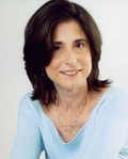Happiness
The Keys to Happiness: Curiosity and Conscious Choice
Explore the unknown with a sense of wonder, instead of fear and negativity.
Posted June 26, 2013
“Curiosity is the wick in the candle of learning.” William Arthur Ward

“Curiosity is the wick in the candle of learning.” William Arthur Ward
Over the past few years I have noticed myself saying a similar phrase to patients. My purpose is to make the process of therapy safe and helpful so that people can achieve their goals. Three words sum up my philosophy of what I believe facilitates healing and growth: curiosity without judgment.
Someone who has decided to enter psychotherapy is usually curious about what is preventing them from being happier or getting what they want in their life. But what often happens is they berate themselves or others for feelings, choices, and actions. It may be about things in the past, presently occurring, or fears about a future endeavor. The result can be a masochistic, blaming or fearful quagmire. “I should have done this." “I’ve wasted so much time.” “How could they have done that?” “What if it doesn’t work out?” This ‘stuck mind tape” is another problem in, and of itself. The net result is that a more curious stance leading to increased knowledge, action and resolution is hindered.
Curiosity without judgment does not give the self or others a “free pass” to not accept responsibility for choices, actions or behaviors. Rather it opens the door to be more fully present to really explore what is impacting present difficulties.
So what gets in the way of people being able to do that whether they are in therapy, or not?
Preconceived notions, fear of the unknown and shame or guilt about feelings, are high on the list of culprits that impede an individual’s natural curious nature. People can generalize feelings about themselves from one particular thought or action. “I’m a bad person because I did, felt or thought that.” Then instead of being curious or open to learn more, a part of them shuts down. Sometimes in addition to “self or other” blame, defenses such as rationalization, denial or avoidance take over.
Thoughts are different from actions. Actions that hurt others, depending upon what they are, need further consideration. In some instances, especially when some illegal action has taken place, more critical judgment and consequence is indicated. But it shouldn’t suspend our curiosity about why someone would do something to hurt another human being.
Infants are born with an innate curiosity about the world, themselves and their environment. Look at the baby who takes joy in gazing at their foot as it moves, or the toddler who waddles across the room, checking back to see that their caretaker is still there to protect them. Does the caretaker encourage that curiosity, ignore it, squelch it, or worry about it?
As individuals grow and develop they take on the feelings and beliefs of those around them and towards them. Sometimes later on they may reject them; sometimes not. But some of the earliest ones about themselves remain steadfast. As Dan Siegel states in his book, Mindsight, “Self- compassion and self-acceptance emerge quite seamlessly from the secure attachments that are the result of consistent, continuous and caring connections with our caregivers in early life.” The ability to be curious, open and accepting is at the heart of these attachments.
Whether we have had that in our early life or not, how can we nurture that innate ability within us as adults? First and foremost, try not to be fearful of your feelings. If you are, be curious about why you are. Is it because you are afraid you will act on them? If they are potentially harmful to yourself, or others you need to immediately talk to an appropriate professional. If not, and they just make you uncomfortable; try to utilize some of the suggestions below.
Tips:
1) As you look at issues or problems you are struggling with, see where your associations take you. If exploring something about yourself and a critical inner voice emerges and starts to berate you, don’t fight it. Simply notice it; possibly name it as “The Critical Voice”, or the “There I Go Again Voice”. This serves a few purposes. First, it stops it for a moment and decreases its power. Secondly it allows you to become more mindful of what you do and think. Thirdly, it provides you with the opportunity to become more curious about the issue or feeling at hand, including why you always go to such a negative place. This sets the stage for more exploratory work and eventual success in resolving the problem.
2) When examining relationships with others, i.e., Parents spouses, partners, children, friends, and work associates, if a self- critical or blaming voice comes up, it is important to acknowledge it. Notice the feeling(s) attached to it. Is it anger, shame, sadness or guilt? Become better able to sit with the feeling and not have to do anything about it. It’s just a feeling. I remember a former supervisor of mine telling me that he believed what cured people was not insight, but being able to tolerate all the feelings that the insight brings.
3) Become more aware of mind- body connections. When you are angry, where do you feel it in your body? Clenched teeth or fist, racing heart? How about fear? Blood pressure increase, muscle tensions, shaking? Emotional traumas can be held in different parts of the body and affect us in ways that we may not be aware. Being curious about these connections may potentially heal some physical, as well as emotional difficulties.
Thinking about, or doing something differently than you have previously creates new physical and emotional realities. Studies have shown that this can actually change brain chemistry. In another book by Dan Siegel, The Mindful Brain, he notes “How we pay attention promotes neural plasticity, the change of neural connections in response to experience….When we focus our attention in specific ways we are activating the brains circuitry. This activation can strengthen the synaptic linkages in those areas.”
Curiosity may or may not have killed the cat, but it doesn’t have to kill you. Instead consider that curiosity is the birth of possibilities…




